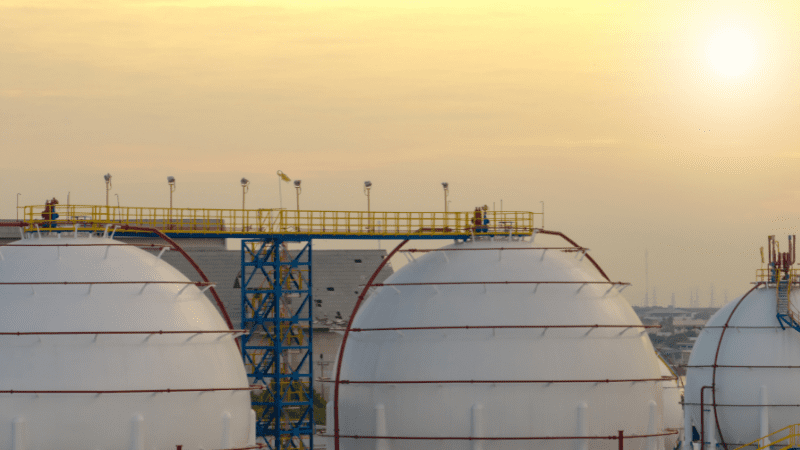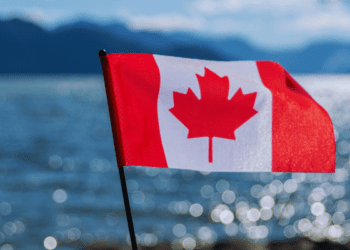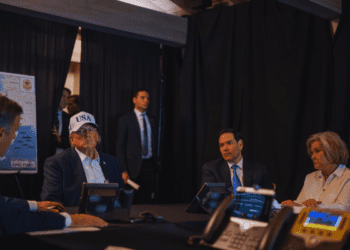This article originally appeared in the Calgary Herald.
By Jeff Kucharski, February 26, 2024
U.S. President Joe Biden’s move to freeze new liquid natural gas export terminals could provide much-needed impetus to Canada’s economy by accelerating LNG export projects on our West Coast.
The U.S. already has seven LNG export terminals while Canada has none. The U.S. is the world’s No. 1 LNG exporter, with shipments expected to double by the end of this decade even without new terminals.
LNG exports from North America are essential to maintaining global energy security and affordability, because the electricity sectors in many countries depend on natural gas to replace coal-fired generation and back up intermittent renewables. Nowhere is this truer than in the Indo-Pacific region, where population and economic growth are driving the demand for energy.
The Canadian natural gas sector has many stakeholders. But what’s good for producers doesn’t automatically equate to what’s good for all stakeholders. Certainly, Canadian producers and their shareholders benefit the most by shipping their gas south to the U.S. The U.S. in turn benefits from the political and economic advantages that LNG export capacity confers on them.
However, a broader range of Canadian stakeholders benefit from increased LNG exports from our ports, including pipeline companies, LNG exporters, local communities, Indigenous groups and all the ancillary businesses that support export infrastructure.
Canada will also benefit from the diplomatic and economic leverage that LNG exports confer on us, particularly in the Indo-Pacific. Canada would become more attractive to the region as a strategic partner that can supply those countries with energy and economic security.
While the U.S. is and will likely remain Canada’s most important energy trading partner, we shouldn’t be so naive as to assume the relationship comes with no risk. Politics in the U.S. often ignores the highly integrated nature of the North American energy system when it is politically expedient: witness how the Keystone pipeline cancellation restricted our access to U.S. markets under the same Biden administration.
With a presidential election this fall, Canada now finds itself again at the mercy of U.S. politics. It’s time to change the dynamic.
Alberta Premier Danielle Smith recently stated that she hoped Biden’s LNG pause would be used as an opportunity to accelerate some of Canada’s LNG projects. She is right. The U.S. move is one more factor that could help make the LNG Canada Phase II expansion more likely, and give further economic impetus to projects such as Woodfibre LNG, Cedar LNG, Ksi Lisims LNG and FortisBC’s expansion.
Instead of blaming the Americans for throttling back LNG export capacity, we should take a hard look in the mirror at what Canada has done to make it so difficult to build our own export infrastructure, including regulatory delays and policy uncertainty.
Despite what some environmental activists say, the most credible forecasts point to increased LNG demand through to 2050 and beyond, especially in the Indo-Pacific region. Shell’s most recent outlook report estimates that demand will rise by more than 50 per cent by 2040, driven by economic growth in China, and in South and Southeast Asia.
In the electricity sector, the future of renewables is tied to gas because it is not yet feasible for any country to have an electricity grid that relies entirely on wind and solar due to intermittent output and the high cost of battery storage.
Canadian federal and provincial governments should not try to mimic the Biden administration by restricting LNG exports or making it more difficult to build export terminals. Governments should be doing everything they can to reduce red tape and spur growth in our LNG export capacity.
As Canada rolls out its new Indo-Pacific strategy, it has an opportunity to become a valued and reliable supplier of LNG to the Indo-Pacific, while at the same time generating much-needed economic benefits at home. Let’s not waste another golden opportunity.
Jeff Kucharski is a senior fellow at the Macdonald-Laurier Institute. He has a PhD in energy science and writes and publishes on energy, geopolitics and the Indo-Pacific.






